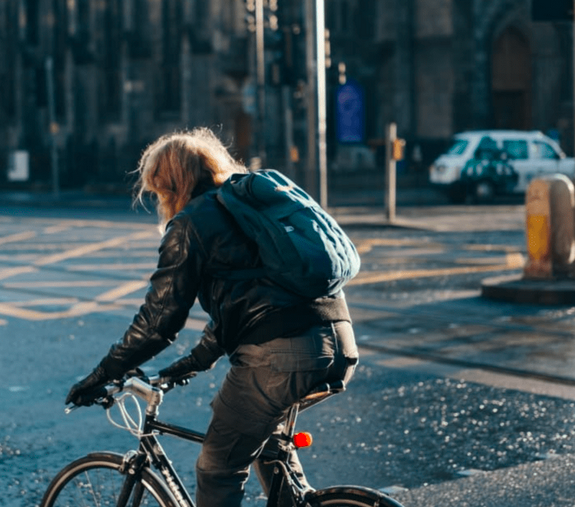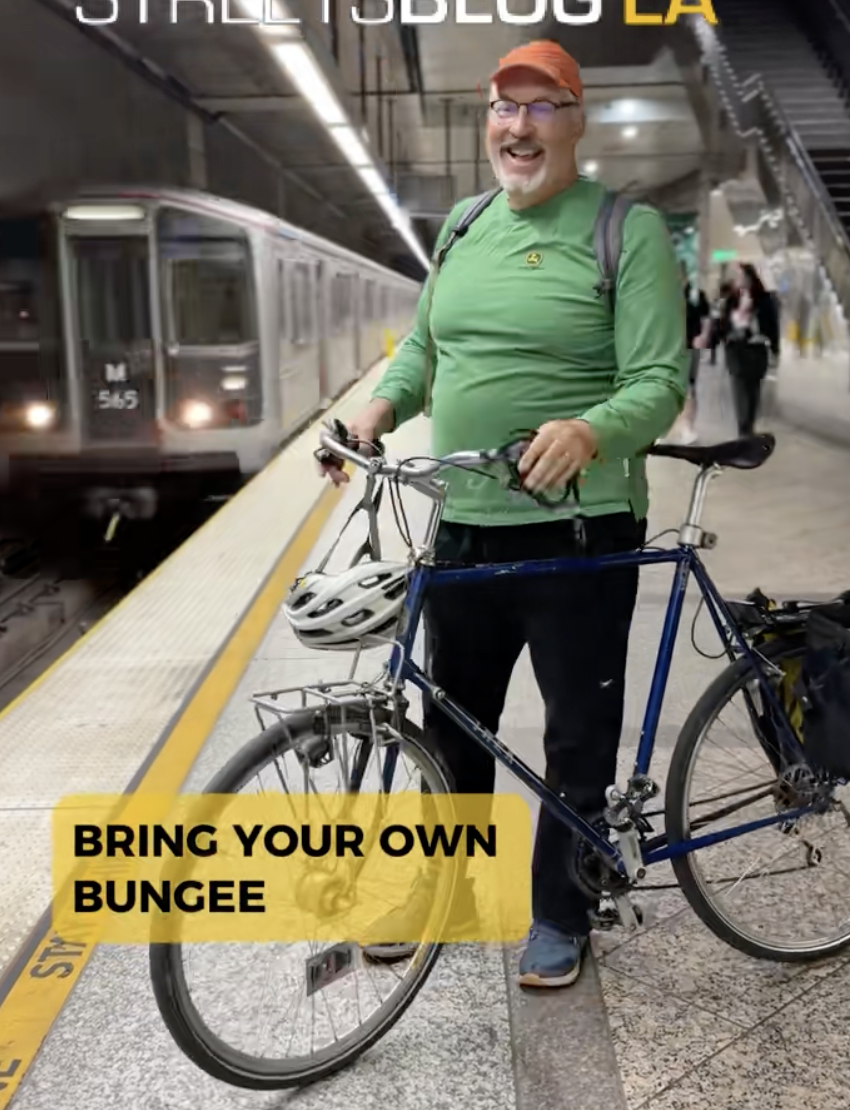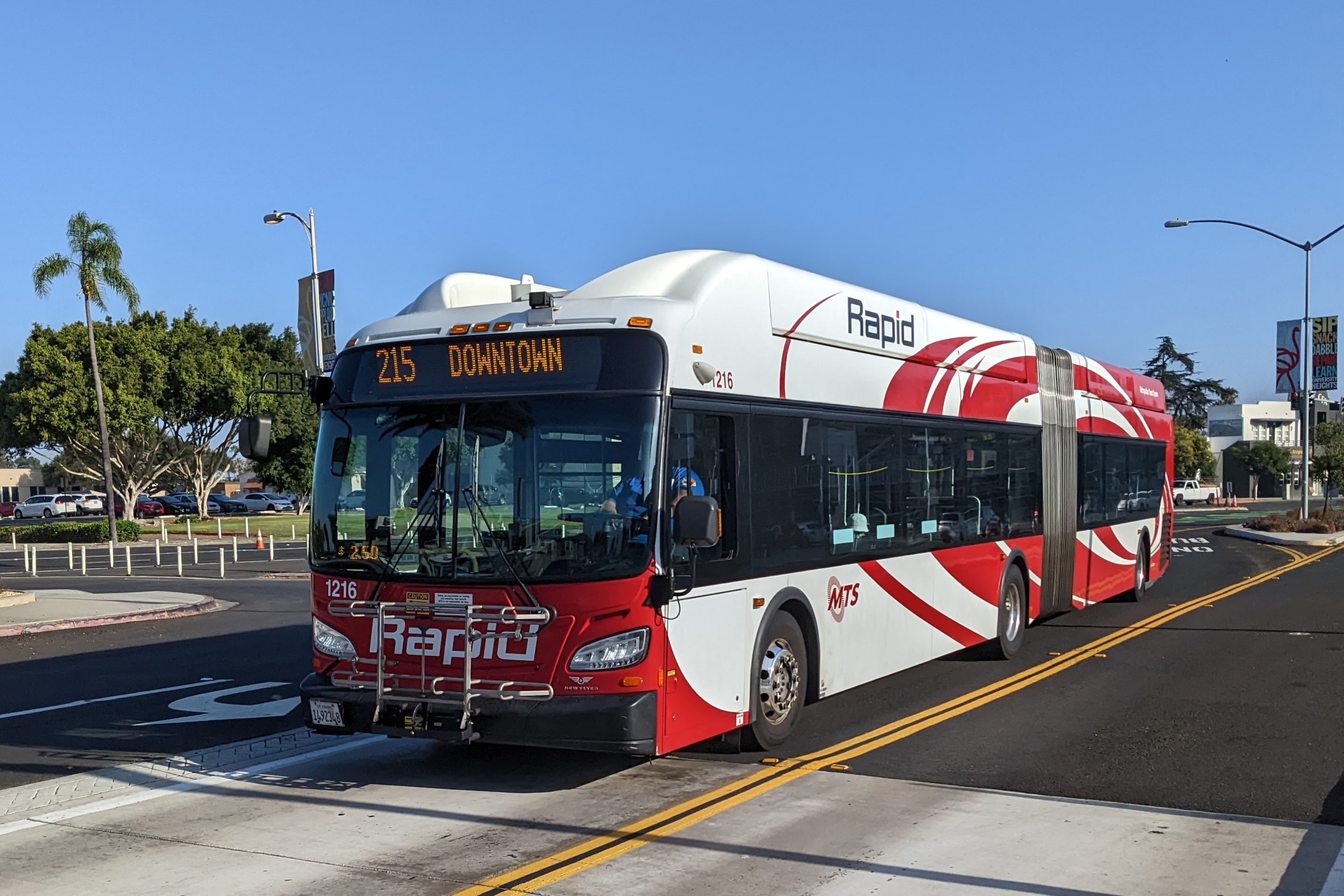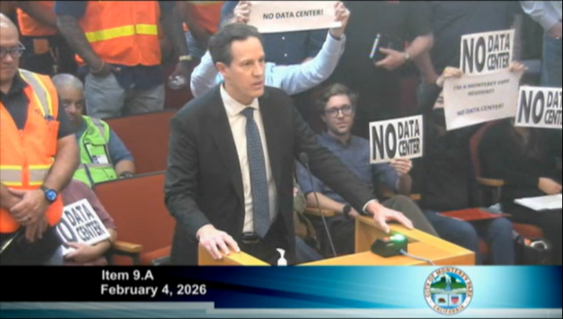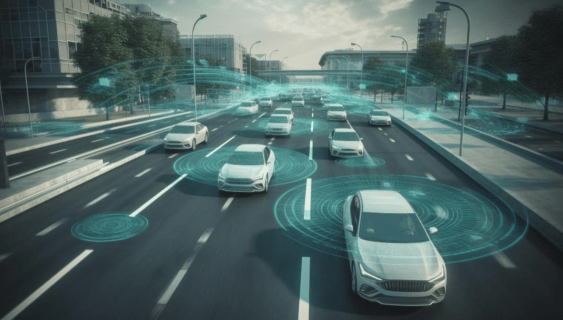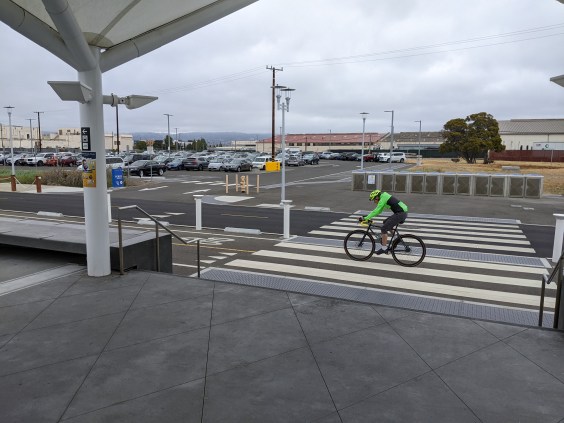It's not too late for cities to prevent a total carmageddon as their COVID-19 lockdowns ease — and they need to think beyond simple infrastructure to get it done.
Cities around the world are doing the right thing by expanding sidewalks to accommodate social distancing, slowing speed limits to keep an influx of new vulnerable road users safe, building pop-up (and permanent) bike lanes, instituting Slow Streets and Open Streets programs, and other common-sense changes to their street infrastructure. And American cities owe it to all residents to catch up to their international peers and do all of these things even more. But we should also look further afield for solutions outside the world of infrastructure, too — especially if we want our streets to be comprehensively safe and accessible for everyone.
Here are seven street safety strategies cities are experimenting with right now that have gotten a little less press, but are no less crucial to the safety of bikers, walkers, wheelchair users, and more our post-pandemic streets.
The Italian bike/scooter credit
It's understandable that transit users in Italy — one of the countries hit hardest by COVID-19 — might be wary of crowded train cars for a while. But since the Bel Paese doesn't want all those people to hop into cars, the government's broader stimulus package will fund 70 percent of the cost of a bike, scooter, or micromobility membership, capping at 500 euros (about $540). It'd be great if our federal government recognized the economic power of micromobility, too – but states and cities can consider their own, miniaturized versions of these programs, too.
The French bike repair credit
Even without an Italy-style subsidy, U.S. bike shops are already struggling to keep up with demand for new cycles. That's why we'd be wise to also emulate France, which is giving out 50 euros in credits to get old bikes repaired by local shops. The credits can only be used at registered bike shops, which is a shame, since the program could have empowered riders to learn to perform repairs themselves, or get them done at more accessible unofficial shops in their communities. But a permissive and generous bike repair credit could be a game changer in many cities — and it's not particularly expensive to fund.
Government sponsored-cycle training
Here's another great idea out of France: road user education for novice cyclists, paid for on the government dime.
This type of program might be particularly impactful in an American context. Record numbers of cyclists are using the historically empty roads in the U.S. during lockdown, but those riders will have a very different experience if cities are slow to institute real infrastructure changes. No amount of rider education can replace good road design, but a little skills training to navigate an imperfect streetscape (like learning to avoid the door zone and take the lane) doesn't hurt. Making such programs optional for taking the road – no, we are not advocating for bicycle licenses, which are dumb* — and lowering the bar to entry to "free" via robust public subsidy are both essential. If this program is structured like earlier state-sponsored cycling training programs in France, the classes will be primarily hosted at public schools, which would easily check all of those boxes — and could be easily replicable on this side of the pond.
*Note: before we get emails, driver's licenses are decidedly not dumb, and cycling classes should never be considered a replacement for driver's ed.
Public-private commuter benefits
Yes, France deserves one more shout-out here — this time, for actually paying people to cycle to work.
The national government is reportedly "accelerating a program allowing employers to cover up to 400 euros of travel costs of staff who cycle to work." And while it's not clear what form that allowance will take or what specific travel costs will be reimbursable, the concept has worked in the past: in 2015, the country funded an innovative trial that paid 8,000 employees a modest per-mile rate if they'd switch from driving to biking that resulted in a 19 percent reduction in car commuting. That's a modest investment with big societal returns that we would be wise to watch.
The U.K. micromobility trials
The United Kingdom is another country that is working fast to prevent a surge in driving — in this case, by fast-tracking e-scooter trials. Electric scooters are technically illegal in the Queendom, but the country is wasting no time in studying fast ways to get them to the streets before commuters return to work en masse. A shocking number of U.S. cities don't allow e-scooters either — they were illegal in New York State until just six weeks ago — but it doesn't have to be that way.
China rethinks urban freight...
Shipping logistics in urban areas have long been a street safety nightmare, and the reported 49 percent rise in package delivery in April alone isn't helping matters much. Even worse, since many people will still choose to stay home more even after lockdowns ease, rates of online shopping aren't expected to return to pre-pandemic levels anytime soon – which means experts are predicting a surge in commuter driving and a continued surge in delivery trucks on the road.
China has responded to their own surge in supply delivery during the pandemic with a pilot program designed to cut down on the number of delivery trucks on our roads by combining small shipments from small carriers into larger loads. The combined freight vehicles are called "non-vessel operating common carriers," and while we know that's not quite as exciting to most people as getting $540 for a new bike from the government, it still has the potential to transform our places — and the U.S. should imitate this great idea.
...and Miami de-cars shipping
So, before you get too excited: this is a really small pilot program. But the fact that Miami is even thinking about using innovative new cargo bike designs like these for last-mile delivery — yes, even if the program has only put four e-cargo bikes on the road so far — it still puts the Magic City way ahead of most U.S. metropolises.
There should be vehicles like these on every street in American post COVID-19. There probably should have been one before the pandemic, too.
What cities aren't doing
This isn't a comprehensive list of non-infrastructure-based strategies to make our streets safer post COVID-19. But there were a few strategies for which we couldn't find strong examples, that cities would be wise to consider, too — many of which have strong implications for equity.
We're talking about comprehensive anti-racist reform to protect people of color from the raft of dangers beyond car traffic that they contend with every day. We're talking about legalizing socially-distanced street vending operations that disproportionately employ people of color (and could help keep our restaurant ecosystem running in a post-COVID world). We're talking about making sure that every bike share provides access to paracycles. We're talking about sweeping land use changes that make active transportation not just safe, but convenient and practical — because if the only home you can get and the only job you can get are thirty miles apart, no bike lane in the world, no matter how fabulously protected from traffic, will turn you into a bike commuter.
Know any cities that are making great, non-infrastructure-based changes that we missed? Any changes you're not seeing that you wish your place would make? Leave 'em in the comments.
